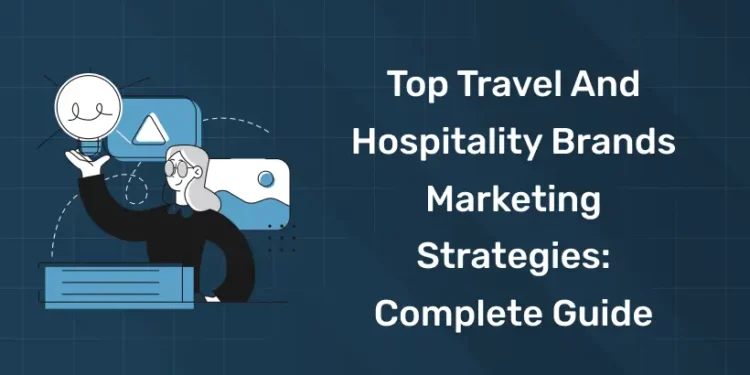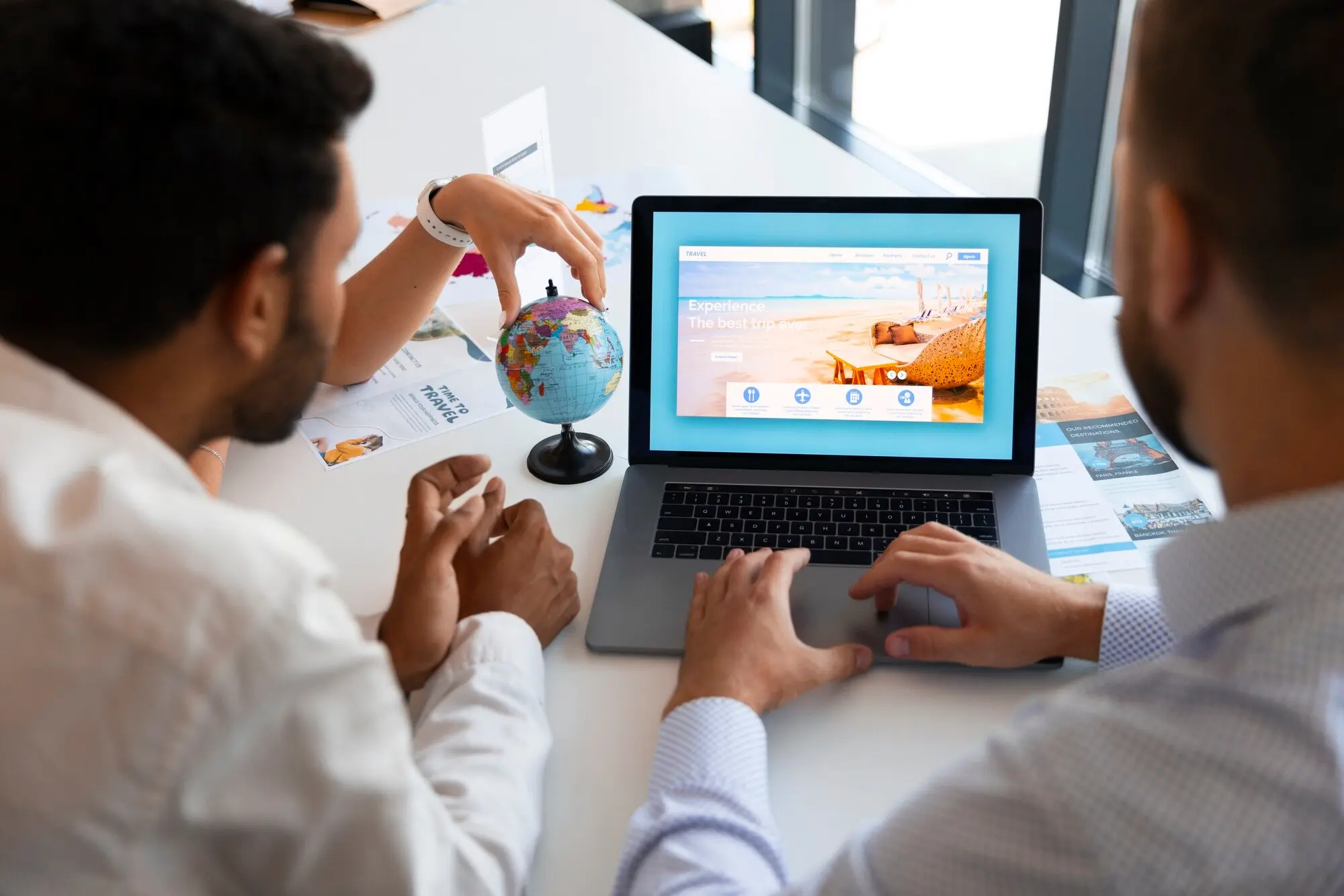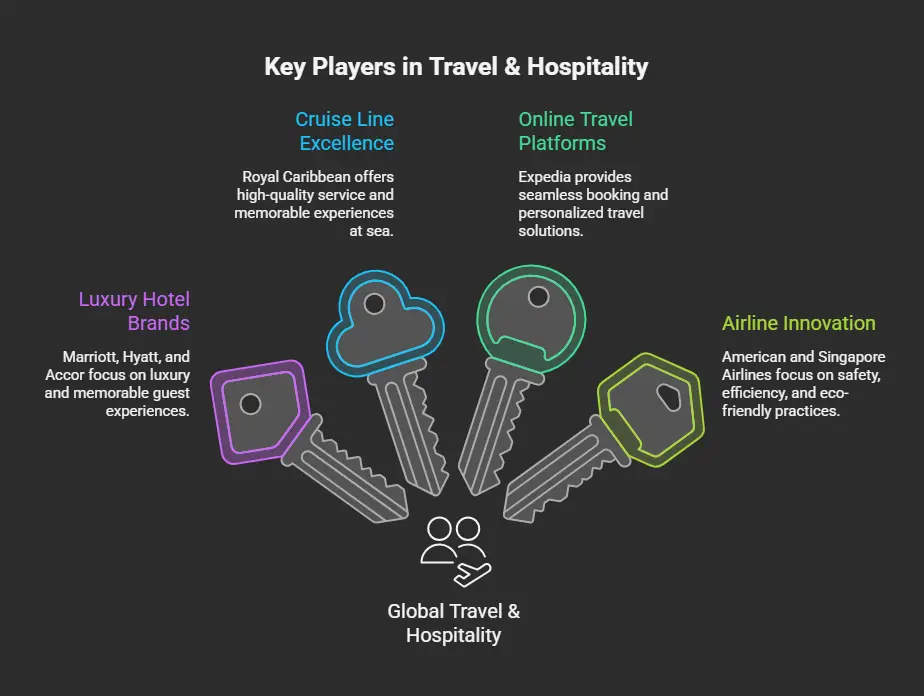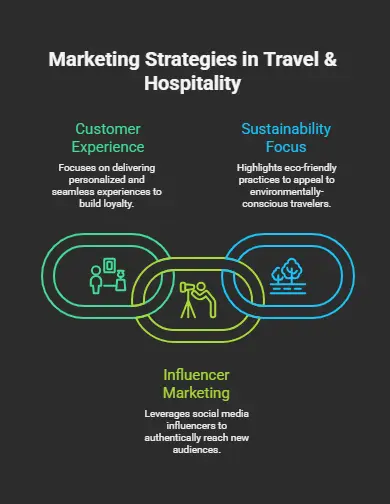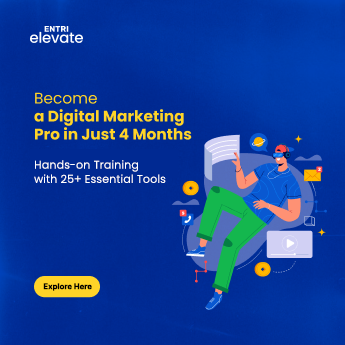Table of Contents
The travel and hospitality industry is one of the most dynamic and competitive markets in the world. From airlines and hotels to online travel agencies and cruise lines, brands are constantly coming with creative marketing strategies to attract and maintain customers. In today’s digital world it is not enough to offer good service. These brands must build strong connections, offer personalized experiences, and stay ahead with smart digital campaigns.
In this blog, we will carefully look at how some top trips and hospitality brands such as Marriott, Expedia, Hyatt and American Airline’s markets themselves. Whether it is through loyalty programs, influencer marketing, social media or mobile app, each has its own unique approach. The whole guide will help you understand the strategies that do the best and can be learned from them.
Achieve exceptional results with Digital marketing techniques! Enroll Here!
Introduction: Why Marketing Is Key in Travel & Hospitality
Marketing plays an important role in the journey and the hospitality industry. It’s just more than advertising hotels or flight agreements – it’s about creating emotional connections, making brand loyalty and providing unforgettable experience. With the infinite option for passengers, companies require smart and continuous marketing strategies to stand out, stay relevant and grow.
Industry Importance
The travel and hospitality industry is one of the largest economic areas of the world. This includes hotels, airlines, resorts, cruise lines, travel agencies and tourist boards. Every day, millions of people travel to business, vacation, education or health. For these passengers, marketing acts as a guide. This indicates their decisions, shapes expectations and affects where they live, how they fly and what activities they choose.
In today’s digital world, people plan their trips online. They rely on social media, search engines, travel apps and customer reviews before ordering. This makes digital marketing, content creation and brand narrative more important than ever. The brands that tell their story and provide a smooth online experience are more likely to gain confidence in travelers.
Challenges & Opportunities
The industry is also facing many challenges. First, the customer behavior is changed – travelers will have more individual and more durable alternatives today. The competition is fierce with countless hotels, airlines and travel platforms that offer similar services. In addition, global issues such as health crisis, political instability and environmental considerations can directly affect the demand for travel.
Another major challenge is the increase in technology. Although it helps in automated services, it also pushes companies to upgrade the system to meet customer expectations. It is not easy to keep in mind the trends such as mobile booking, AI-based recommendations and virtual reality experiences-special for traditional or small-scale businesses.
But there is an opportunity with any challenge. Smart marketing can help brands join the deeper levels of passengers. Loyalty programs, influencers Marketing, personalized services and social media involvement can convert a time guests to repeated customers. By using data analysis, companies can better understand customers’ needs and offer more analog services.
What Makes Travel & Hospitality Marketing Unique?
1: What is the primary goal of SEO (Search Engine Optimization)?
Marketing in the travel and hospitality industry is different from other areas, as it focuses on selling experiences, emotions and memories instead of bare products or services. People not only buy a hotel room or a flight-they buy a migration, a celebration or once in their lives. This emotional element makes the marketing method more individual, more visual and more customer-focused. There are three main elements here that make the marketing of travel and hospitality really unique:
Personalization
Personalization is at the center of modern travel marketing. Each passenger has different requirements, priorities and expectations. Some are looking for luxury and comfort, while others want a budget-friendly stay or adventure-filled holidays. Successful travel marks use data and technology to better understand the audience and understand personal recommendations.
For example, the hotel website and travel apps now provide customized proposals based on the user’s previous booking, location or search history. If you often book weekend trips for beach sites, they can start looking at the offer of resort or travel guides to fit that interest. Airlines also send individual email messages, show a flight offer from a passenger’s local airport or remind me to book trips around the holiday. Such personalization creates self-confidence, improves customers’ satisfaction and increases the chances of buying repetition.
Loyalty Programs
Loyalty is a major part in the journey and the hospitality industry. Many brands are constantly creating structured loyalty programs to reward customers. These programs are just more than the points collection system-they are a way to create long-term conditions and encourage repeated businesses.
Hotels like Marriott and Hilton, and airlines like Emirates or Delta, offer points for every stay or flight. These points can be used for free stays, upgrading, first check-in or exclusive access to salons and events. The more customers travel with the same brand, the greater the benefits. The loyalty programs help companies gather customers with insight and tailor their services. At the same time, they give passengers a sense of belonging and uniqueness, which continues to return to them.
Digital-First Approach
In today’s world, most travel decisions begin online. Digital platforms play a major role in all stages of the journey, from the discovery of destinations on Instagram to booking flights through applications. This is why travel and hospitality marketing is now following a digital first approach.
Brand SEOs, paid ads, email marketing, social media marketing and focus on user-friendly websites or apps. Mobile adaptation should be one, as many users directly seek, compare and book from their smartphones. Influencer marketing, online reviews and video content also make passengers in real time. By using digital tools such as AI, chatbots and real-time alerts, brands can add 24/7 to customers and offer spontaneous service.
Become an AI-powered Digital Marketing Expert
Master AI-Driven Digital Marketing: Learn Core Skills and Tools to Lead the Industry!
Explore CourseOverview of Top Travel & Hospitality Brands
The travel and hospitality industry is full of iconic brands known for their customer service, global presence and innovative marketing strategies. Brands such as Marriott, Hyatt, Accor, and Royal Caribbean have created a strong reputation by focusing on luxury, comfort and memorable guest experiences. They use loyalty programs, mobile apps and personal marketing to keep passengers busy and come back. These hotels and cruise brands offer continuous service of high quality, while embracing digital trends to be relevant.
On the other hand, companies such as Expedia, American Airlines and Singapore Airlines focus on offering simple, technical travel solutions. Expadia, like a large online travel platform, makes booking flights, hotels and holiday packages easily and personalized. Airlines such as American and Singapore Airlines are known for their safety, efficiency and innovation-opened environmentally friendly practices to contact modern travelers. Together, these brands represent the best of what the global travel and hospitality industry has to offer.
Achieve exceptional results with Digital marketing techniques! Enroll Here!
Individual Brand Strategies (With Links to Cluster Pages)
In the competing world of travel and hospitality, each brand uses unique strategies to connect, loyalty and stand out with travelers. Let’s see how top marks like Expedia, Marriott, American Airlines, Hayat, Royal Caribbean, Singapore Airlines and how to succeed in this fast transport industry include themselves in the market.
🌍 Expedia
Explore more about Expedia’s strategy ➝
Expedia focuses on having a one-stop solution for all travel requirements-from hooking aircraft and hotels for car ownership and holiday package. The platform uses advanced algorithms to offer individual recommendations, which helps users find the best deal easily. Expedia also invests in SEO, paid ads, mobile apps and user-friendly interfaces. Through loyalty programs such as selected rewards and accompanying travel offers, the brand keeps customers busy and returns.
🏨 Marriott International
Explore more about Marriott’s strategy ➝
Marriott’s strategy is created around a memorable experience and a strong emotional relationship with the guests. The loyalty program, Marriott Bonvoy, is a central part of the marketing. Marriott also uses mobile check-ins, contactless services and digital tools as individual offers. Storytelling and brand material can expect luxury and relaxed guests, while partnership and exclusive events make customers feel valuable and special.
✈️ American Airlines
Explore more about American Airlines’ strategy ➝
American Airlines Trust focuses on safety and convenience. This marketing itself as a reliable travel partner for both business and holiday passengers. With its AAdvantage loyalty program, it rewards those who fly up with upgrading and quotas. The brand uses mobile apps, real-time notifications and digital boarding to increase customers’ journey. Sustainability messages and modernization of fleets also play an important role in their brand image.
🏢 Hyatt Hotels Corporation
Explore more about Hyatt’s strategy ➝
Hyatt’s marketing centers for care, comfort and well-being. The world encourages loyalty by offering prices and unique guest experiences that fit the Hyatt program. Hyatt benefits from impressive marketing, high quality visual qualities and emotional campaigns to attract modern travelers. The brand also invests in welfare-focused functions and technology-capable facilities such as keyless room entry etc.
🚢 Royal Caribbean
Explore more about Royal Caribbean’s strategy ➝
Royal Caribbean gives himself a place as a leader in adventure cruise. Marketing highlights fun, family-friendly activities, foreign destinations and luxury on the ship. They use virtual tourism, high-effect video content and impressive collaboration to demonstrate life on their ships. Campaign often has limited time agreements, packages and loyal perks and benefits through the Crown and Anchor Society.
✈️ Singapore Airlines
Explore more about Singapore Airlines’ strategy ➝
Singapore Airlines is known for world-class service and hospitality. Marketing emphasizes comfort, elegance and cultural prosperity. KrisFlyer loyalty programs and luxury cabin experiences are central to their campaigns. They also focus on stability and innovation, promote fuel-capable aircraft and increase digital experiences for customers.
🏨 Accor
Explore more about Accor’s strategy ➝
Accor runs a diverse portfolio of brands, from luxury to budget friendly. ALL – Accor Live Limitless program brings the benefits of reward, experience and lifestyle together under an umbrella. Accor focuses on individual marketing, app-based booking and sustainable tourism. With strategic partnerships and local engagement, it creates meaningful experience for guests all over the world.
Common Marketing Themes Among Leading Brands
Top travel and hospitality brands can use different strategies, but they all focus on some major marketing subjects that help them attract and maintain customers. These general subjects include customer experience, impressive and marketing on social media and increasing attention to stability. Let’s see how each of them plays an important role in success.
Customer Experience
Providing an excellent customer experience is the basis for all successful marketing of travel and hospitality. Whether it’s a hotel, plane or a cruise, people remember how they was treated. Leading brand customers such as Marriott, Hyatt, and Singapore Airlines Airlines invest heavily in making the journey smooth, comfortable.
For example, many hotel chains now offer mobile check-in, through 24/7 in apps and personalized room. Airlines offer real-time updates, seamless boarding and entertainment options to make the flight joyful. These small details create emotional connections, and happy customers often become loyal guests or spokesmen. These small details build emotional connections, and happy customers often become loyal guests or brand advocates.
Influencer & Social Media Marketing
Social media plays a powerful role in travel inspiration and decision-making. Passengers often detect ideas on platforms such as Instagram, YouTube and Tiktok. The leading brands benefit from this by working with their followers with real travel experience, hotel stays, cruise trips and destination tips.
For example, Expedia and Royal Caribbean collaborate with travel effects to demonstrate exciting destinations and onboard experiences. This participation helps to build trust and reach new target groups in an authentic way. In addition, brands operate on social media, market user-generated content and respond to customers online to promote commitment and visibility online. High quality images, travel and rear scenes include Hotel Tour followers and motivating them to order.
Sustainability Focus
Today’s passengers care more about the planet. They want to support brands that are environmentally friendly and socially responsible. This is why stability becomes an important topic in the marketing of travel and hospitality. Airlines such as American Airlines and Singapore Airlines highlight the efforts to reduce carbon emissions, invest in fuel-capable aircraft and cut plastic waste. Hotel brands such as Accor and Hyatt promote their green certificates, water-saving initiatives and permanent food options.
Marketing messages now include “travel responsible”, “environmentally conscious comfort” and “support from local communities”. This effort not only appeals to environmental guests, but also helps brands to show that they only care more than profits.
Become an AI-powered Digital Marketing Expert
Master AI-Driven Digital Marketing: Learn Core Skills and Tools to Lead the Industry!
Explore CourseKey Takeaways: How you can Apply these Strategies
-
Focus on Customer Experience: Feel valuable to your customers at all stages of your trip. Whether you run a hotel, travel agency or any service-based business, make sure the ordering process is even, the communication is clear and the overall experience is individual. Small touch such as reception messages, loyalty rewarda or assistant reminders can create a permanent impression.
-
Use Data for Personalization: Learn from brands such as Expedia and Marriott, who use customer data to offer sequential recommendations. Even small business customers can customize email, offers or travel package based on history, preferences or behavior.
-
Build a Strong Loyalty Program: Encourage business by repeating by offering points, allowances or discounts to return customers. A well-designed loyalty program not only creates confidence, but also increases the long-term customer value.
-
Leverage Social Media and Influencers: Social media is a powerful advertising and marketing tool in journey and hospitality. Share visual materials, highlight customer experiences and participate with local effects to expand access. Encourage happy guests to quit reviews and mark your brand online.
-
Go Digital and Mobile-Friendly: Make sure the site and order are mobile-friendly. Use a digital tool such as chatbott, mobile check-in or real-time updates to increase the feature. Many passengers are planning everything from their phones, so your digital appearance should be faster, simple and useful.
-
Promote Sustainability: Today’s customers care approximately the environment. Highlight any environmentally pleasant initiative you need to lessen the use of plastic, save water or support local communities. It creates faith and appeals to conscious travelers.
-
Tell Your Brand Story: Not just sell services-sell stories. Share stories of brand assignments, values and success stories to connect emotionally with the audience. Storytelling helps to separate your business in the crowded market.
Achieve exceptional results with Digital marketing techniques! Enroll Here!
Conclusion
The travel and hospitality industry is growing rapidly, and the brands that focus in the future are those who focus on experience, embracing digital innovation, making strong loyalty programs and keeping in touch with passengers at a personal level. From international hotel chains to main airlines and online tour structures, the maximum successful agencies understand the strength of storytelling, privatization and stability.
By getting to know from the techniques used by pinnacle marks such as Marriott, Expedia, Hyatt, American Airlines, and others, all sizes can be inspiring to improve their personal advertising efforts. Whether you run a five star hotel, a travel startup or a local enterprise, this validated strategy allow you to attract more clients, create a status dating and flourish in the competing global marketplace.
| Also Read | |
| Expedia Marketing Strategy | Marriott Marketing Strategy |
| American Airlines Marketing Strategy | Hyatt Marketing Strategy |
| Royal Caribbean Marketing Strategy | Singapore Airlines Marketing Strategy |
Frequently Asked Questions
What makes marketing in the travel and hospitality industry different from other industries?
Marketing in the travel and hospitality industry is unique as it focuses on selling experiences and feelings instead of just products or services. Passengers want memorable travel, comfort and personal service. Marks should contact the audience emotionally, use history, visual and personal expeditions to create faith and loyalty. Digital equipment, social evidence (such as reviews) and loyalty programs also play a much larger role than many other industries.
How do travel brands use personalization in their marketing?
Personalization in travel marketing involves using customer data to deliver tailored experiences, offers, and content. For example, Expedia recommends hotels or destinations based on previous discoveries or bookings. Marriott can send customized mention to loyal members based on their preferences. Personalization improves customers’ satisfaction and improves the possibility of repeated business when it makes passengers understand and feel valuable.
What are some common marketing strategies used by top travel and hospitality brands?
Some of the most effective marketing strategies are included:
- Loyalty programs that repeat customers (eg Marriott Bonvoy, World of Hyatt)).
- Influencer marketing and storytelling on social media to increase brand access.
- Personal email marketing based on travel history or preferences.
- Mobile-first strategies such as app-based check-in, ordering and real-time updates.
- Stability message to appeal to conscious passengers against the environment.
- User generated content and customer reviews to build trust.
How do loyalty programs help in travel marketing?
Loyalty programs are necessary in travel marketing as they encourage repeated business and increase brand loyalty. Programs such as Marriott Bonvoy, Aadvantage (American Airlines) and Accor Live Limitless (All) provide brands for ordering, which can be redeemed for discount, upgrade and exclusive experiences. These programs also help brands collect valuable customer data so that they can customize future offers and improve customer satisfaction.
Why is a digital-first approach important in this industry?
A digital-first approach is important because most passengers plan their trips, book and manage their tours online through mobile devices. Brands that provide spontaneous digital experiences through websites, apps and social media are ahead of competition. Digital marketing also allows real-time communication, personal reproduction and automation, making the customer travel faster and more practical.
What role does sustainability play in travel and hospitality marketing today?
Sustainability has become a significant focus for modern travelers. Many preferred brands that are environmentally friendly, reduce waste and support local communities. Travel and hospitality brands now highlight green practice in their marketing substances such as fuel-capable flights, plastic-free rooms and permanent food efforts. This effort not only attracts conscious travelers, but also helps to create a responsible and future brand image.


